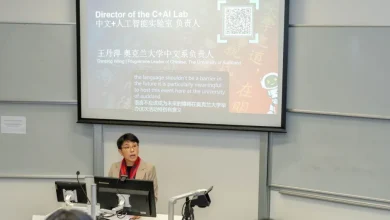
Have you ever wondered how the world keeps running so sm
oothly despite all the big changes happening with technology? From the phones in our pockets to the electric cars on the road, nearly every industry is transforming fast. At the heart of these changes are engineers, working behind the scenes to keep everything moving forward. But with new tools, systems, and expectations, the way engineers work is also changing. They’re not just building bridges or machines anymore—they’re also solving digital problems in real time.
In this blog, we will share how engineers are adapting to the digital transformation era.
Learning New Technologies and Tools
One of the first changes engineers face today is the constant flow of new technologies. Digital tools like artificial intelligence (AI), machine learning, cloud platforms, and data analytics are no longer just for computer scientists. Engineers in every field must now understand how to use these tools to stay competitive.
To stay updated, many engineers take online courses, attend training sessions, or join professional groups. They often use learning platforms that let them study while continuing their jobs. This kind of learning helps them apply the newest technologies to their work right away. Even traditional fields like civil or mechanical engineering now rely on digital modeling software, smart sensors, and automation.
Embracing Online and Remote Learning
In the past, becoming an engineer usually meant years of attending college in person. Now, the path to becoming an engineer is more flexible. Many people are turning to online learning as a way to start or grow their careers. Digital transformation has opened the door to new ways of earning engineering degrees, including online programs that meet high standards of education and quality.
Some of the best programs include an ABET accredited online engineering degree. These programs meet the same standards as on-campus ones, but they give students more freedom. People can study from home while working or taking care of their family. This makes engineering more accessible to a wider group of people. Online learning also shows how digital tools are shaping the way future engineers are trained.
Shifting to Data-Driven Decision Making
In the digital era, engineers are using data to guide many of their decisions. Instead of relying only on past experiences or manual tests, they now collect and study data from sensors, machines, and systems. This helps them see patterns, predict problems, and improve designs before they are even built. Engineers now must understand how to gather, read, and apply data to their projects.
This shift helps teams move faster and avoid mistakes. With real-time data, engineers can adjust systems as needed without waiting for problems to appear. For example, in manufacturing, smart machines can send data back to engineers so they can track performance. This allows for faster fixes and better planning. Data is becoming a key tool in how engineers solve problems today.
Working Across Different Teams and Fields
Engineering is no longer just about focusing on one task or system. Today’s engineers often work with people from other areas, like software developers, business leaders, or marketers. This kind of teamwork helps make sure projects meet both technical and business goals. Digital tools help connect these teams, no matter where they are located.
Because of this, communication and teamwork skills are more important than ever. Engineers must explain their ideas clearly and understand the needs of others. Many teams use tools like video calls, shared workspaces, and cloud-based systems to stay connected. This way of working brings new ideas and faster progress, but it also means engineers must learn how to adapt to different team styles and expectations.
Focusing on Cybersecurity and Digital Safety
With more systems connected to the internet, keeping data and digital tools safe has become a big focus for engineers. Cybersecurity is now a part of many engineering projects. Whether it’s protecting a smart building or making sure factory machines can’t be hacked, engineers must think about digital safety from the start of a project.
To do this, engineers often work with IT and cybersecurity experts. They help test systems for weaknesses and build stronger protections. Engineers must learn the basics of security, including how to set up safe networks and avoid common threats. As more engineering work moves online, protecting digital systems is becoming just as important as building strong physical structures.
Automating Everyday Engineering Tasks
Automation is changing how engineers do their work. Tasks that used to take hours—like drawing up designs or running tests—can now be done with the help of software. This allows engineers to focus more on creative problem-solving and big-picture thinking. They can explore more design options or test more ideas without wasting time.
This change also brings new challenges. Engineers must learn how to use automation tools and decide when to trust them. Sometimes, software can make mistakes or miss details. That’s why human judgment is still important. Engineers are learning to use automation as a support system, not a replacement. It’s a tool that helps them work smarter, not harder.
Putting More Focus on Sustainability
Digital tools are helping engineers create solutions that are better for the planet. With advanced modeling and data tracking, engineers can measure energy use, waste, and emissions during the design process. This helps them make smarter choices about materials, energy systems, and building methods. As a result, they can reduce harm to the environment while still meeting project goals.
Many engineers are now expected to include sustainability in their work. Companies and governments want to meet environmental goals, and engineering plays a big part in that. From designing electric vehicles to planning smart cities, engineers are using digital tools to create a cleaner and more efficient future. Sustainability is no longer just a nice idea—it’s a part of everyday decisions.
In conclusion, engineers are stepping up in the digital transformation era by learning new tools, working across teams, and solving problems in creative ways. They are using data, automation, and sustainability practices to build smarter systems. They are also learning to protect their digital projects and adapt to a fast-paced world. All of this shows how engineering is growing and changing with the times.

